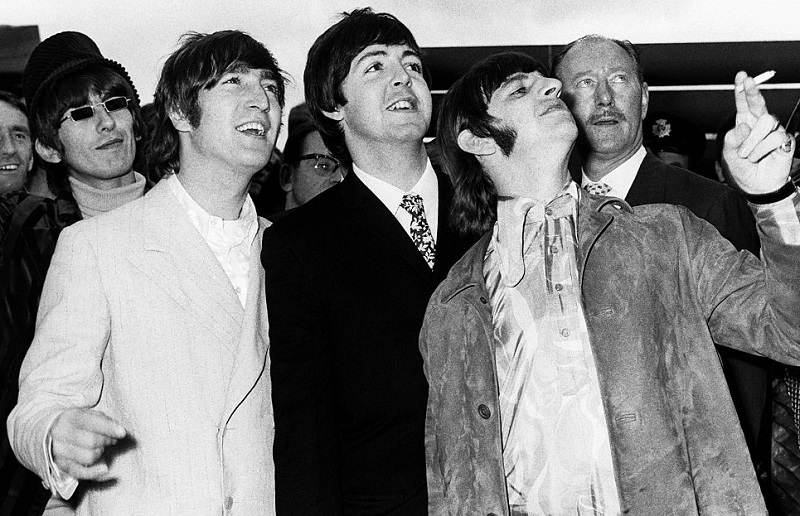When they arrived America and made their historic appearance on Ed Sullivan, The Beatles were quite young. Ringo, the elder of the group, checked in at 23 years old. Meanwhile, George Harrison, the youngest, hadn’t even turned 21.
So when the smiling lads performed “I Want to Hold Your Hand,” it sounded like exactly the sort of song they’d write. (It shot to No. 1 not long before they landed at JFK.) But things would change by mid-decade.
A little over two years later, the Fab Four recorded an album featuring backwards tape loops, a guitar solo in reverse, and sound effects that seemed to be seagulls. The LP ended with John Lennon vocals that sounded “like the Dalai Lama chanting from a mountaintop.”
On that track (“Tomorrow Never Knows”), John kicked things off with a line from Timothy Leary’s Psychedelic Experience. Looking back, he wasn’t exaggerating when he called that classic record “the acid album.”
‘Revolver’ was the first record that showed a major influence of LSD.
When John sang, “Turn off your mind, relax and float downstream,” the Leary quote got the ultimate framing via Ringo’s thunderous drums and the sound engineer’s recording trick. For fans who’d tried drugs in the mid-’60s, there was no mistaking the Beatles’ state of mind.
“Round about this time people were starting to experiment with drugs, including LSD,” Paul McCartney explained in Anthology. “John had got hold of Timothy Leary’s adaptation of The Tibetan Book of the Dead” and learned about the voyage it was believed people took after death.
“With LSD, this theme was all the more interesting,” Paul said. But on “She Said She Said,” John directly referenced an acid trip he’d had in California.
On this occasion, John used a quote from a conversation to kick off the Revolver track. “She said, I know what it like to be dead” came directly from the mouth of Peter Fonda when John had taken LSD with him at a Beverly Hills party in 1965. (John simply changed the gender.)
Fonda, who’d been shot as a child, got on John’s nerves when he insisted upon showing him scars from the incident while they were tripping on acid. But Revolver had several more drug references.
The many other drug references found on ‘Revolver’
While George said Rubber Soul was the first album that showed the influence of marijuana on the band, it didn’t stop there. Paul said he wrote “Got to Get You into My Life” with marijuana in mind (as opposed to a woman).
On Side Two of Revolver, listeners heard about a character John named “Doctor Robert.” If you “take a drink from his special cup” then he “helps you to understand.” John was least subtle of all when singing about that particular physician (modeled after a real Manhattan doctor).
“Mainly about drugs and pills,” John said when discussing the track with Playboy’s David Sheff in 1980. According to the Beatles Bible, it was the band’s first explicit reference to drugs. While fans had heard about a “Day Tripper” before, they’d never learned of doctors mixing narcotic cocktails.
When John started writing “I Am the Walrus” a year later, he’d been experimenting even more. “The first line was written on one acid trip one weekend. The second line was written on the next acid trip the next weekend, and it was filled in after I met Yoko,” he said.



